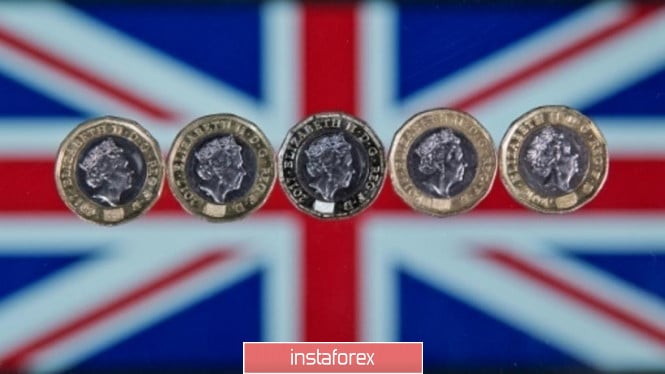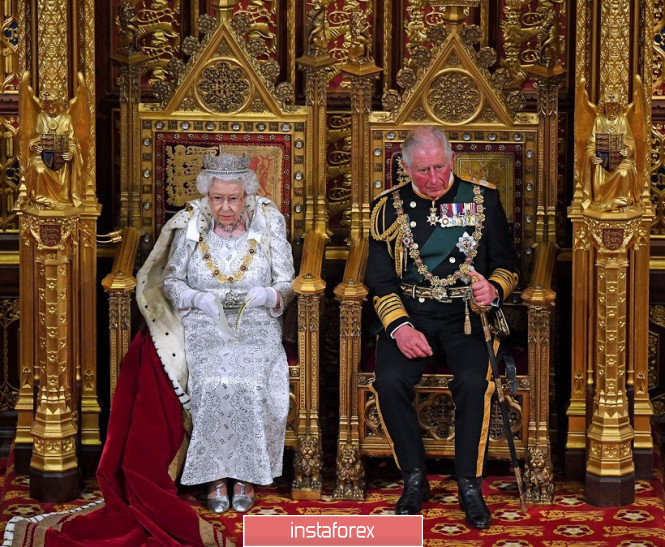The pound continues to show fighting abilities: despite a significant decrease at the opening of the trading week, the sterling was able not only to regain lost positions, but also to update the daily high, returning to the framework of the 26th figure. The GBP/USD pair demonstrates strong volatility for the third day in a row, which is due to a contradictory fundamental background regarding the prospects of the "divorce proceedings" of Britain and the EU. Today's price fluctuations have served as an additional confirmation of one obvious fact: Brexit can instantly raise the British currency to multi-month highs and return it to the levels of multi-year lows with the same speed. Every day, the volatility of the pair will only increase: after all, in just a few days, a summit of the European Union countries will be held in Brussels, at which the fate of the historical transaction will be decided.

In general, today's GBP/USD price fluctuations should be seen in the context of the events of the past week. Following talks between Boris Johnson and Leo Varadkar, the parties issued an unexpectedly optimistic statement. The Irish prime minister said that his British counterpart made him a "quite interesting proposal" that could lead to a deal before October 31. According to the British press, Johnson suggested that Varadkar conclude a truncated free trade deal, which, firstly, avoids the "hard" Brexit, and secondly, will become the basis for a wider agreement that can be concluded later, before the end of the transition period . At the moment, there are not enough details of the truncated deal. It is known that the proposed free trade agreement between Britain and the EU is likely to cancel all tariffs on imported and exported goods. At the same time, Johnson still insists on introducing a regime of "translucent" border in any of its execution (in particular, we are talking about customs checks). But apparently, these points of the deal belong to the category of to be discussed and adjusted.
In other words, Johnson and Vardakar took a serious step towards resolving the main Brexit problem. For the first time in the entire negotiation process, the British initiative was supported by the Irish prime minister. If he becomes an ally of London at the EU summit, then the chances of concluding a deal (even if in a truncated version) will increase in many ways. But in any case, now the prospects of Brexit depend on the position of the leadership of the European Union and in the future - on the position of deputies of the British Parliament. After the first emotions came to naught, traders had quite reasonable doubts that these puzzles would eventually form a single picture.
In particular, today Irish Foreign Minister Simon Coveney stated that, despite certain positive shifts, "the parties are still far from concluding a deal." Then there was information that the EU representatives had tightened their position in the negotiations: according to them, the EU now expects "more concessions along the Irish border," adding that the deal is unlikely to take place this week (the EU summit starts on October 17) . In addition, according to an insider from the Reuters news agency, the EU leadership doubts that Johnson is able to conduct a coordinated (updated) deal through the millstones of the House of Commons - at least in its current composition, where the prime minister does not have "his" majority.
Actually, some members of the British Parliament have already expressed their skepticism regarding the prospects for approving the deal. In particular, the leader of the Democratic Unionist Party, Arlene Foster, said that her political force would not support proposals that would actually "trap" Northern Ireland into the trap of the European Union. According to her, Belfast should not remain within the framework of a single market or the customs union while the rest of the country leaves the regulatory orbit of the EU. In other words, the unionists, who in this composition of the British Parliament are temporary allies of the Conservatives, have already declared their negative position regarding the Johnson's deal. Representatives of several other political forces expressed a similar opinion - however, they expressed their personal opinion, and not the position of the represented parties.
What, then, is the secret to the "stress resistance" of the British currency, if Johnson, in fact, can follow the path of Theresa May? In my opinion, this is due to several reasons.
Firstly, the likelihood of the implementation of a hard Brexit has in any case decreased: even if deputies in the House of Commons fail the Johnson-proposed deal, the prime minister will most likely ask Brussels to postpone Brexit until the beginning of the year (whereas the EU has already expressed their willingness to postpone it until next summer ) Given the current ratings of Conservatives, Johnson may initiate early parliamentary elections by trying to form an independent majority in Parliament. In this case, the agreed draft deal will be agreed in the House of Commons without any problems. Theresa May once took a similar step, but was defeated: she not only did not strengthen her position in Parliament, but also lost the majority (after which the Conservatives entered into a forced alliance with the DUP). After the arrival of Johnson, Tory ratings went up, so the current prime minister can take advantage of this.

In addition, the throne speech of Queen Elizabeth II provided some support for the pound. Opening a new session of Parliament today, she stated that the British government's priority is the implementation of Brexit by October 31 this year - "based on new partnerships based on the principles of free trade and good neighborly cooperation." Although the Cabinet of Ministers is preparing this speech, rhetoric in favor of "good neighborliness" provided additional support for the British currency.
Thus, in the near future, the pound will be subject to increased volatility throughout the market, including paired with the dollar. It is difficult to predict the direction of price movement: everything will depend on the rhetoric of key political players in Britain. If the likelihood of a "soft" Brexit or prolongation of the negotiation process grows, the GBP/USD pair may jump to the next resistance level - 1.2850 (the upper line of the Bollinger Bands indicator on the weekly chart). Otherwise, the pair will return to the area of the 24th figure.
The material has been provided by InstaForex Company - www.instaforex.com